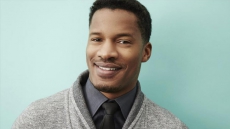OTTAWA — It's been a year since Canadian voters took a leap of faith, placing a bet on deficit-financed government ambition after two decades of cuts, caution and small-c conservatism.
"Canadians have spoken," Justin Trudeau said late in the evening last Oct. 19 after a federal election that swept his third-place Liberals to office with a comfortable 15-seat majority.
"You want a government with a vision and an agenda for this country that is positive and ambitious and hopeful. Well, my friends, I promise you tonight that I will lead that government. I will make that vision a reality."
Twelve months later, the Liberals remain ambitious and hopeful, even if their reach exceeds their grasp.
Perhaps more surprising, in a world of political cynicism and ever-shorter attention spans, is that the Canadian public appears willing to hang on for the heady ride.
Whether it be driving middle-class economic growth and alleviating inequality, fixing First Nations' relationships with the Crown, putting the country on a sustainable path to a low-carbon economy, getting natural resources to world markets, or any of another half-dozen complex initiatives, the fairest assessment would be that Trudeau's lofty vision remains a work in progress.

The government's wish list includes leveraging private sector investment in a new infrastructure investment bank, unleashing the recreational marijuana market, plotting a clear path to Canada's 2030 emissions targets, hashing out home care and pharmacare promises and revamping the electoral system.
Yet multiple public opinion surveys by a cross-section of research companies have Liberal support consistently in the mid-40s to low 50s — an almost gravity-defying run — with Trudeau's personal approval ratings into the 60th percentile.
"I think it's as much about what they're not as what they are," said pollster Greg Lyle of Innovative Research.
The change in tone and style from the flinty Harper Conservatives has yet to lose its novelty. Witness the remarkable public turnout of more than 2,000 people for a Trudeau visit last week in Medicine Hat, Alta., a traditional Liberal desert where Conservative Jim Hillyer (whose untimely death from a heart attack has spurred a fall byelection) won 65 per cent of the popular vote last Oct. 19.
The Liberal "sunny ways" mantra also stands in stark contrast to the venomous and tawdry presidential election spectacle unfolding south of the border.
"I suspect the Trudeau Jr. glow has lived as long it has precisely because of what's going on in the States right now," said Katherine Fierlbeck, a political science professor who researches political culture and health policy at Dalhousie University in Halifax.

The Liberal platform was "very savvy" in the way it pitched consultations or consideration on a number of policy fronts, Fierlbeck said.
"That's what they spent the first year doing, almost to a fault: an awful lot of consultation. But that's what they said they would do, so you can't really hold it against them."
However, attributing the government's popularity simply to style is not the whole picture, argued Phillip Resnick, professor emeritus at the University of British Columbia.
"The Liberals are enjoying the honeymoon they currently have in good part because their policies — be it on infrastructure spending, be it on climate change, be it on international co-operation, (for example), through the UN — correspond more closely to the majority views of Canadians than was true for the Harper government," said Resnick.
Their big-spending first budget, which put the country on a path to a $30-billion deficit this year by broadly boosting middle-income family benefits, cutting middle-income taxes and committing billions for infrastructure, was a generational shift for non-recessionary times.
It's a massive fiscal policy bet that has yet to show dividends, said Douglas Porter, chief economist at BMO Financial Group.
"Arguably, it's too early," said Porter, pointing to the big Liberal "showpiece" Canada child benefit, which didn't kick in until July while the most recent GDP numbers only include August.

"Frankly, count me as a skeptic in what fiscal policy can achieve. I have to say the results have been underwhelming to this point, but it's early and we don't know where (the economy) would have been without it."
In the meantime, the Liberals are getting international cover for their deficit-financed policy from some unlikely sources. The head of the International Monetary Fund, Christine Lagarde, visited Ottawa last month and said she hoped Canada's model would "go viral."
The Liberal campaign success last October was widely perceived to turn on that lurch to the left, with their deficit promise (albeit a more modest $10 billion) seen as the wedge that differentiated them from the New Democrats and Conservatives. Add in the hurried Syrian refugee influx, environmental pledges, upper income tax hikes, health care promises and indigenous commitments and this was to be a radically different government.
Now that the Liberals have put a hold on health care transfer increases, maintained the old Conservative carbon cutting targets, fought First Nations in court and approved a major liquefied natural gas plant in B.C., some grumbling has begun.
"You said you'd be different," the Public Service Alliance of Canada, representing unionized federal employees negotiating a new contract, charges in a new ad campaign aimed a Trudeau. "Make good on your word."
Some conservatives are feeling vindicated.
"There is nothing surprising about the Liberals' behaviour," political science professor Tom Flanagan, a former Stephen Harper confidant, said in an email.

"As long as I have been in Canada — almost 50 years — observers have summed up their modus operandi as, 'Campaign from the left and govern from the right.'"
Flanagan said he wonders why NDP supporters "keep falling for the Liberal shtick during campaigns."
But that doesn't explain the broader public comfort with the avowedly activist Liberals who consistently promote government as a force for good.
Resnick, who has researched North American identity and Canada's place within it, believes "the worm has turned" at least among Western OECD countries and that Canada's traditionally centrist Liberals are benefiting.
"In a way, we're still seeing the other shoe dropping on the 2008 (world economic) collapse," said the UBC academic.
"There's a recognition that, left to its own devices, markets can screw up very badly. Like it or not, you need governments to play a very important balancing and regulating role."
So, directionally, the Liberals at the one-year mark appear to be getting a pass from Canadians, even if many hard choices lie ahead.
As pollster Lyle puts it, "a fundamental truism of politics is that friends come and go but enemies accumulate."




